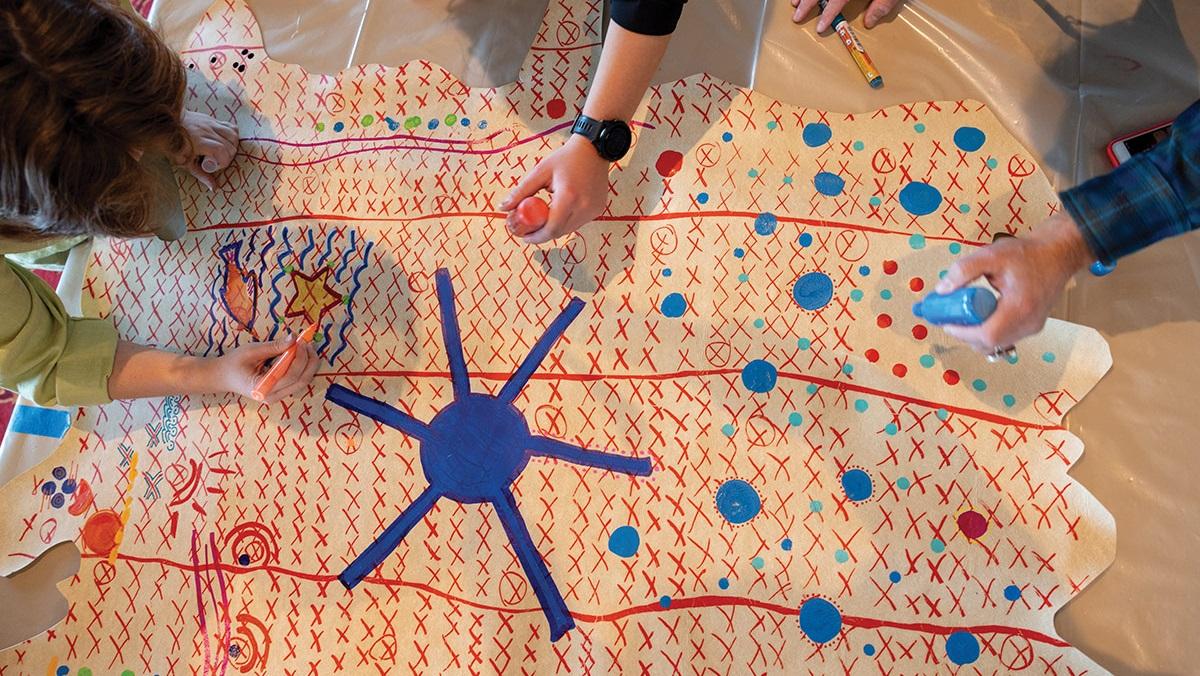Nearly 400 Wisconsin residents gathered last October at the Monona Terrace Convention Center in Madison for Climate Fast Forward, a participatory conference hosted by the Wisconsin Academy of Sciences, Arts & Letters. The conference was an opportunity for change-makers across the state to convene and identify climate actions that are transformational, centered on equity and justice, and achievable for Wisconsin. Business leaders, Tribal Nations staff and members, nonprofit leaders, local government leaders, and young professionals helped shape the conference and outreach strategy. This approach ensured that the conference included voices from diverse groups throughout the state.
Attendees heard from indigenous leaders, a panel of stakeholders on federal funding opportunities, and poet-in-residence Alexandria Delcourt in the opening plenary session. They also participated in self-selected working groups in one of five tracks: Green Jobs & the New Economy, Traditional Perspectives on the Environment, Natural & Working Landscapes, Built Environment, or Climate Justice & Community Resilience. Led by experts in these fields and guided by professional facilitators, the participants quickly got to work to identify climate actions for Wisconsin.
One theme that emerged from all working groups was the desire to create more forums for collaboration to continue the work begun at the conference. Some outcomes of the conference include the creation of a climate justice coalition, a natural climate solutions task force, a new consortium to advocate for affordable energy-efficient housing, a database of climate change outreach activities in Wisconsin, and the strengthening of connections between green and blue industries and higher education. The importance of building relationships between Tribal Nations and nonprofits, as well as with state and federal government agencies, emerged from the track on Traditional Perspectives on the Environment. Another prime concern was educating non-indigenous people working on climate change about indigenous perspectives on the environment and partnering with Tribal Nations.
The collective desire for more collaboration raised questions about funding climate change actions, a constant challenge in climate change work. The opportunities available through the Bipartisan Infrastructure Law and the Inflation Reduction Act were at the forefront of those conversations.
The Climate & Energy Team will publish the climate action plan in March 2023, and will hold regional meetings to gather additional feedback and ideas from Wisconsin residents.




